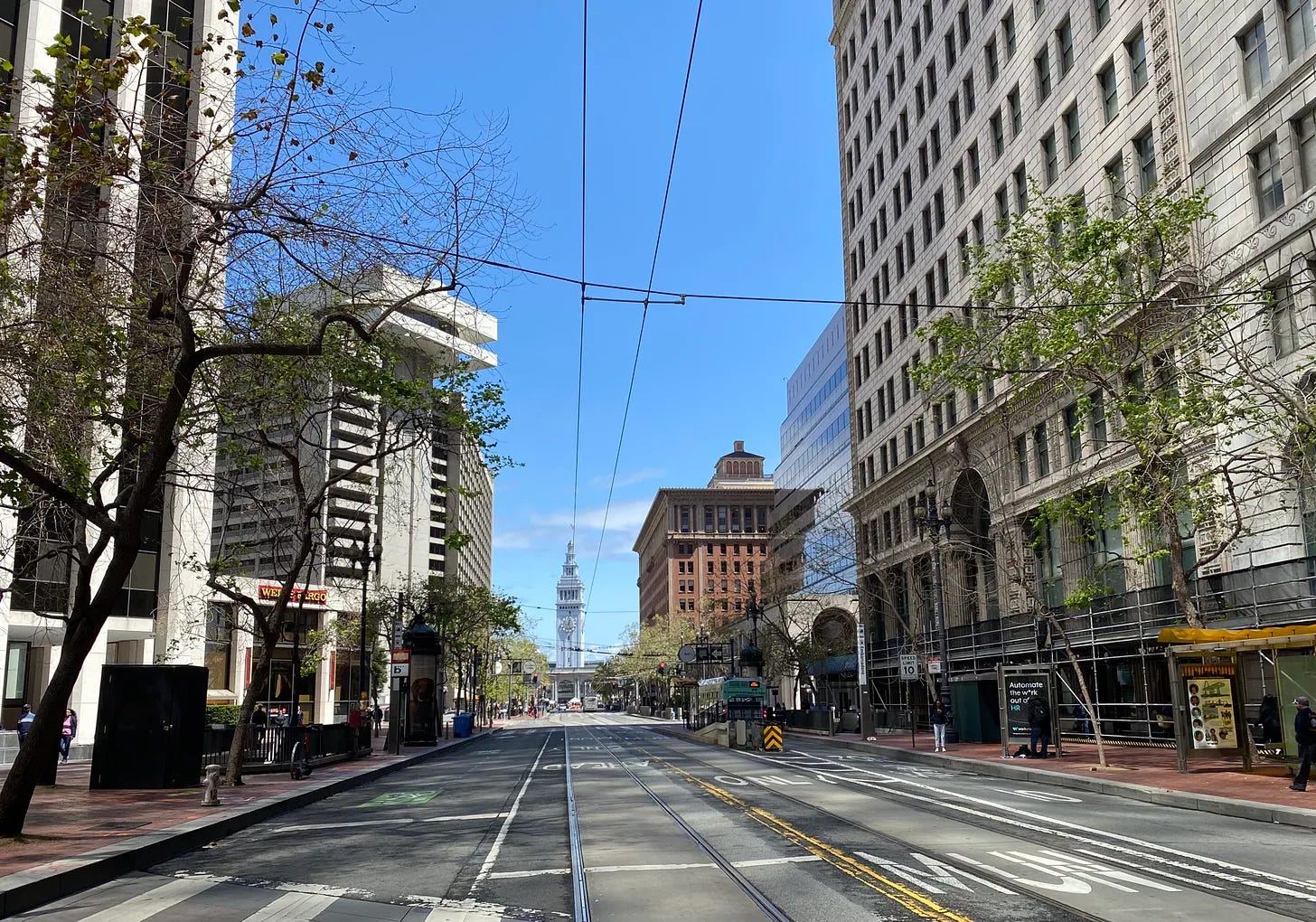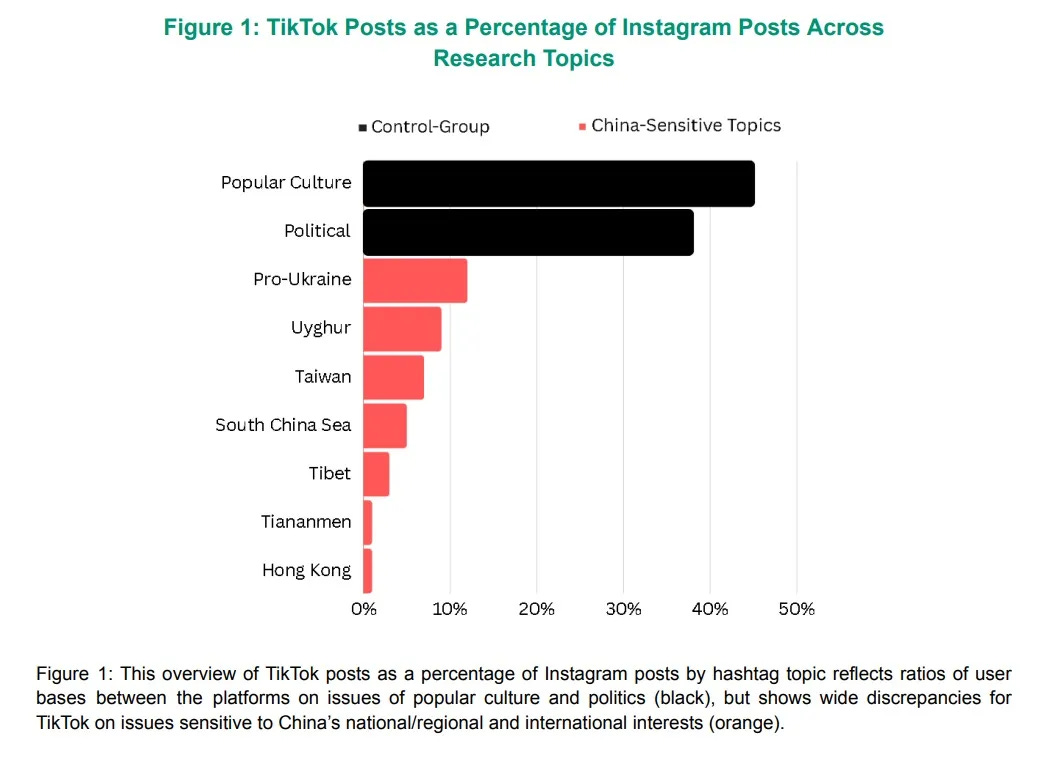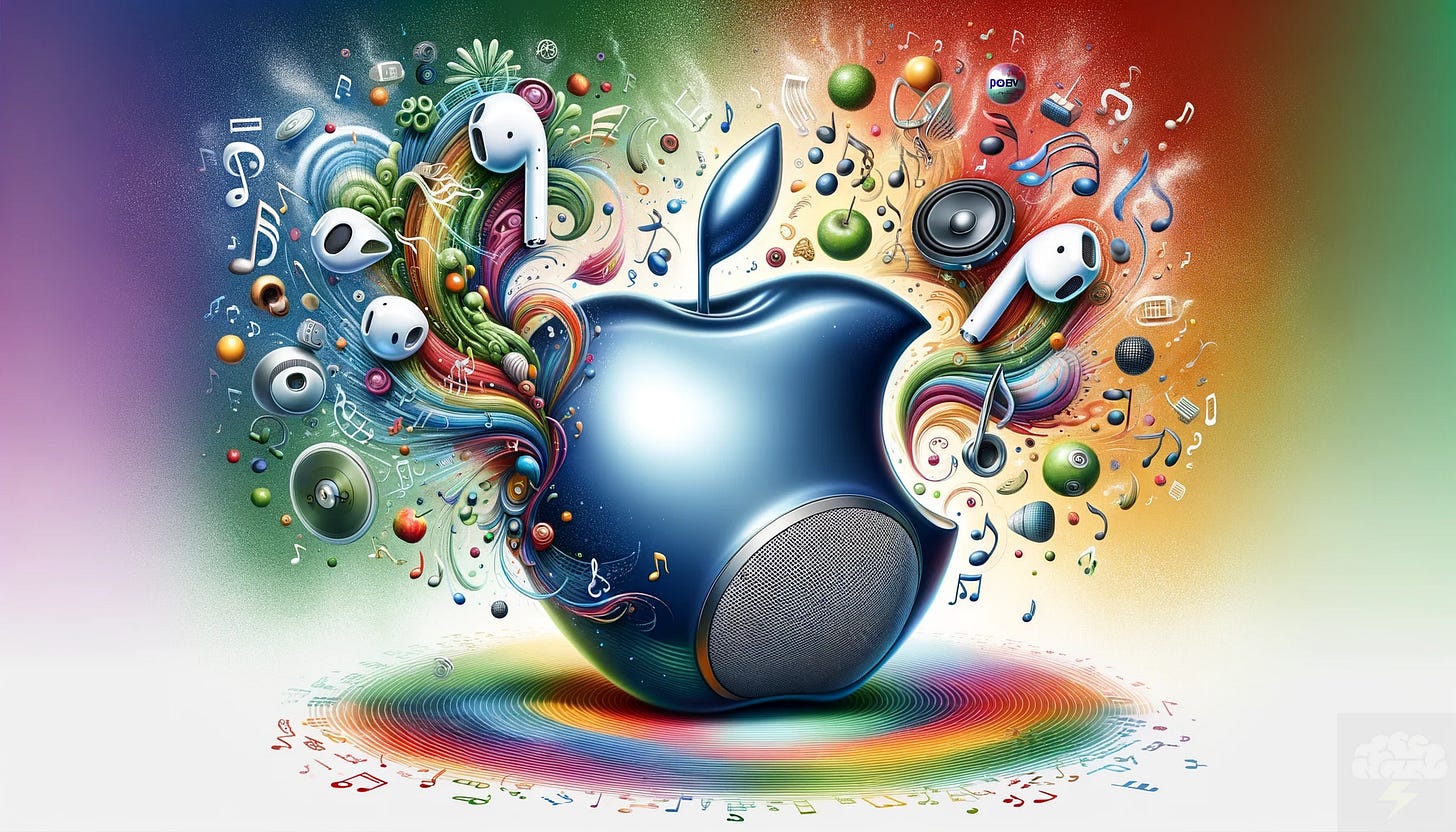135: TikTok's Political Shadow, Spotify's Royalty Mystery, Amazon's Ad Agenda, Apple's Audio Leap, and More.
Exploring TikTok's subtle influence, Spotify's financial deep dive, Amazon Prime's new ad strategy, Apple Music's spatial audio boost, and more!
The Hidden Algorithm
Unveiling TikTok's Influence on Political Discourse
TikTok's potential as a tool for political influence is often overshadowed by privacy debates. Yet, its impact on political narratives may be profound. Recent analysis suggests TikTok may be quietly swaying users from Chinese Communist Party-sensitive topics, funneling them towards more favorable narratives.
A study by the Network Contagion Research Institute highlights the disparity in hashtag popularity between TikTok and Instagram. Political content enjoys moderate visibility, but CCP-sensitive issues like the Tiananmen Square and Hong Kong protests are almost invisible on TikTok, compared to Instagram.
While differences in demographics may explain some discrepancies, a very clear pattern emerges: topics the CCP prefers to silence are suppressed on TikTok.
This leads to a pressing concern: users are likely unaware of the platform's subtle editorializing, a stark contrast to the explicit bias in outlets like Russia Today, MSNBC, and Fox News. This is especially concerning when a growing number of Americans —across all age groups— get their news from TikTok.
The challenge remains whether the U.S. will mandate TikTok's sale to mitigate these influences or if democracy can effectively counteract such information warfare tactics without legal intervention.
Unraveling Spotify's Financial Web
The Journey of Your Subscription Dollar
Full Transparency: I’ve worked for Spotify, but I’m certainty not an apologist. So let's dive into the deep end of the royalty pool.
The plight of the starving artist might just be a tad more complicated than your average Twitter rant suggests. Don't get me wrong, I’ve enjoyed the melodrama of musicians waving digital pitchforks at the streaming behemoth. But as we peel back the layers of Spotify’s Q3 2023 financial onion, we find a juicy 74% going to—gasp—content delivery costs. I know, it's a real shocker that businesses have expenses. But who's pocketing the cash? You guessed it: the record labels and their contractual labyrinth, not Spotify playing the miser.
With a model that's become a linchpin for modern music consumption, understanding where subscriber money actually lands is crucial.
The Breakdown
Spotify’s Q3 2023 financials illuminate the journey of every $10.99 premium subscription, enhanced by an additional $1.69 from ad-supported users. This collective revenue, amounting to $12.68 per user, sees a substantial 74% directed towards content delivery costs, predominantly to record labels, music publishers, and other rights holders.
Spotify’s Grand Plan
A pledge to redirect a billion-dollar bounty towards the artist-label ecosystem, and target the evil twins of fraud and inefficiency.
By eliminating royalties for those under-1,000-stream tracks, the platform's Robin Hood complex aims to stuff the pockets of established artists a bit more. Critics, bless their hearts, are screaming this is a master class in widening the divide between the musical haves and have-nots.
But this isn't a Spotify solo act. The entire music industry is playing this tune, with every streaming service contributing to the same systemic dissonance. Economists and industry analysts, with their fancy graphs and calculators, remind us to focus on the difference between Spotify's payouts to labels and the crumbs that fall to artists post-contractual deductions. Some legal eagles even suggest that artists are getting tangled in the strings of their own record deals.
Artist Voices
Anecdotes from artists vary widely, painting a diverse picture of Spotify's impact. For some, the digital platform has democratized access to audiences worldwide.
Newsweek quotes indie rapper and producer MC Lars:
"Fifty percent of my monthly digital income is literally from Spotify. People complain about streaming, but the thing is, if you own your own masters, it's beneficial financially because you get a little bit each time someone listens to you ... so many fans on tour say they heard of me from Spotify."
But for others, it's a reminder of the minuscule returns when compared to physical sales and live performances. Singer-songwriter Catey Shaw feels that the real problem isn't streaming, it's record labels:
"That [the way profit is distributed] has more to do with the people releasing the song and less to do with who's streaming it. Who owns the master? Who owns the publishing? I'm in a great position because the money isn't being split too many ways. My label is me and one other person. So when the money comes in, it goes straight to us."
Ryan Harris took to Reddit to share his payouts:
I know we are supposed to hate on Spotify for ruining our lives and all, but hey as someone that does this for fun.. I am pretty happy with $1,400 USD (+ $100 USD from iTunes and all that) - wouldn't want to try and base my living on this but estimate I will make about $6,000 USD from streams this year.
Streams: 400,000
Paid: $1400
Rate: $0,0035 per stream or $3.5 per 1000 streams
The Elephant in the Room: YouTube
For all of the hand-wringing about Spotify, YouTube is the real problem.
According to the Trichordist's report:
"The biggest takeaway by far is that YouTube’s Content ID shows a whopping 51% of all streams generating only 6.4% of revenue. Read that again. This is your value gap. Over 50% of all music streams generate less than 7% of revenue."
There are legitimate issues musicians have with Spotify, but YouTube is the biggest impediment to financial growth, not just because their payouts are astonishingly low, but because they're slow to crack down on counterfeit accounts that generate income.
Looking Ahead: Growth, Initiatives, and Transparency
Spotify's user base expansion and market influence may shift the bargaining power dynamics, potentially improving artists' revenue share. The company's initiatives, such as the "Loud & Clear" transparency project, aim to shed light on the payout process, albeit with mixed receptions from the artist community.
Long ago, it may have been reasonable for the labels to take large fees for distribution, but that's when it meant manufacturing tons of plastic and vinyl, and then shipping it to thousands of record stores around the globe. In this case, there's no manufacturing, and distribution is an "upload" button.
The Spotify saga is a microcosm of the broader music industry's challenges. While it’s crucial to critically analyze Spotify's financial operations, it's equally important to consider the systemic issues at play. To truly grasp the reality of artist payouts, one must navigate beyond the streaming giant and delve into the labyrinth of industry practices that predate the digital revolution.
Amazon: Pay More or Watch Ads
Amazon Prime Video is changing its viewing experience, and by “changing” I mean “degrading.” Starting January 29, users will encounter ads during their favorite shows and movies. But there's a catch: for an additional $2.99 a month, viewers can opt for an ad-free experience. Oh, to have been a part of those pricing strategy sessions.
Amazon's Tuesday announcement emphasized this change as a strategic move. "Our goal is to ramp up our investment in captivating content continuously. By introducing this model, we can fuel our content creation engine more robustly. Compared to linear TV and our streaming counterparts, we promise significantly fewer ads," the company explained in an email to subscribers.
This pivot reflects Amazon's commitment to enhancing its content library. Just kidding! It’s actually about subsidizing their $10 BILLION NFL blunder. Lest they let Google’s $9B Sunday Ticket losses steal the show. Programming execs need to stop overpaying for the NFL.
So, Prime viewers now have a choice: embrace the ads and fragmented story-telling, or open their wallets a bit wider for uninterrupted viewing — or, as I mentioned last week — embrace piracy.
Apple Music Boosts Spatial Audio
A Win for Artists and Listeners
In a move to enhance music experiences, Apple Music is incentivizing artists and record labels to adopt Dolby Atmos, the spatial-audio technology that surrounds listeners in sound. This initiative, kicking off next year, rewards songs mixed in Dolby Atmos with greater streaming weightage, potentially leading to higher royalties for early adopters.
It doesn't matter if listeners choose the Atmos version; the mere availability of a track in this format counts. This strategy aims to motivate the music industry to produce new and remixed older tracks with Atmos, an undertaking that's broadly affordable.
Why the push? Apple's hardware, like AirPods and HomePod, supports Atmos playback. More Atmos tracks could spur consumer interest in Apple's audio devices.
Although Apple has remained tight-lipped, reports about these plans emerged as early as October. Spatial audio isn't new to Apple Music; it's been around since 2021, offering an immersive sound experience akin to live performances.
Personally, I’ve had hit-or-miss experiences with spatial audio. Sometimes the mix really adds the song, but more times than not, I’ve found it distracting and certain elements are missing. This is especially true for older songs, where you know every single note.
Interestingly, Amazon Music already provides Dolby Atmos spatial audio, while Spotify hasn't embraced this technology yet. Apple's latest move could be a game-changer in this (currently) niche space, blending technology with music to reshape listening experiences.
THE NEWS DESK
Spotify Wrapped: 6 psychology principles that make it go viral every year.
A masterclass in visual case-study by Growth.Design
boygenius Is Having All the Fun
Backstage with the breakout supergroup of the year.
Taylor Swift’s Business Bonanza Just Keeps Going
Traffic to Swift’s webstore—which introduced a new holiday-themed merch collection last month—hit its highest level within the last five years in late November and is above where it was while she was on tour in earlier months of 2023.
Dolly Parton on the Most Prolific and Invigorating Music of Her Career
Dolly Parton has always been a rock star, even if it took her a bit of time to weave that title into her coat of many colors. As careful and smart as she can be about her image, she never disappoints with her answers.
This man releases a new album on Spotify every single day
The idea of recording an album a day might send the average person running for the hills, but for ambient artist Michiru Aoyama, the routine has been a part of his everyday life for the last two years. He reveals how much money he makes.
GOOD READS

A Boulevard's Broken Dreams
Market Street's transformation into a car-free zone aimed to copy Paris, enhance safety, and boost vibrancy. However, the pandemic and changing economic landscape have left the street quieter than ever, with ambitious redevelopment plans in flux. As businesses continue to shutter and public life dwindles, the city grapples with the challenge of reimagining this historic thoroughfare for a post-pandemic era. The full story over at The San Francisco Standard is worth your time if you want to understand the dysfunction that is SF.
Look Back to Leap Ahead
First Round Review rarely disappoints. Whether you’re a resolution person or not, this article will help you place the starting block for what you hope to achieve in the next 365.
Here's How Much Money You Actually Need to Retire at 55.
How to approach your retirement savings so you can get off the 9-to-5 grind early and spend more time traveling.
In Switzerland, Most People Rent for Life.
At a time when many young people in places like California and New York can’t see a path to buying a home, Switzerland offers a glimpse of a post-ownership society.
No More Free Returns
This shift is driven by the cost of handling returns, which significantly impacts retailers' margins. In 2022, nearly 17% of total merchandise purchased was returned, amounting to approximately $816 billion. Retailers are adjusting policies to mitigate these losses.
Baby Boomers Are Aging - Their Kids Aren’t Ready
Millennials are facing an elder care crisis nobody prepared them for.

















